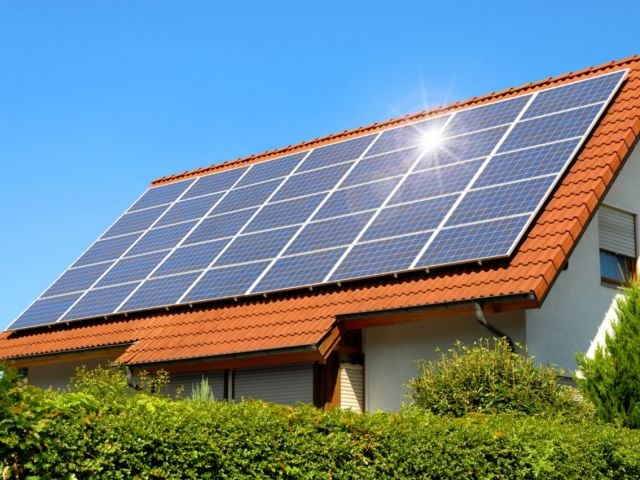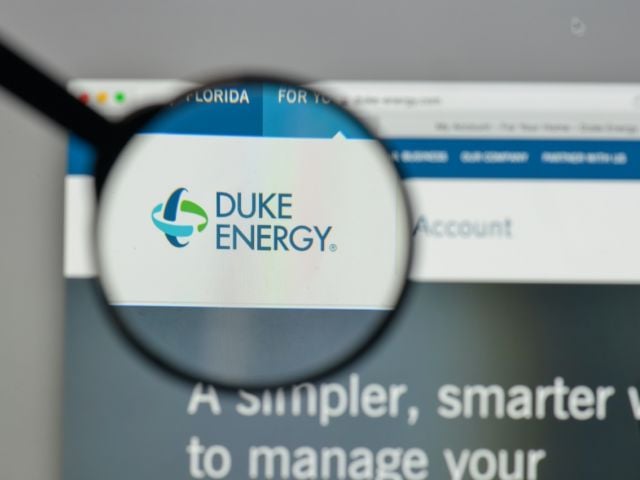
In January, Massachusetts Gov. Charlie Baker announced a goal to reach net-zero greenhouse gas emissions by 2050. Although all New England states have aggressive carbon reduction targets, Massachusetts will be at the center of the region’s efforts.
The Brattle Group reports that New England will need five times the power plant capacity it has now, but Massachusetts makes up nearly half the region’s electricity demand. The good thing is that the state has been a leader in solar generation – ranking fourth in the nation for solar jobs and eighth in installed solar capacity last year – enough to power nearly half a million homes, according to the Solar Foundation and the Solar Energy Industries Association. The state is also in the process of developing its first large-scale offshore wind farm. Brattle says Massachusetts has about half the technical offshore wind potential in New England.
The challenge is that Brattle estimates offshore wind capacity will have to expand nearly 30 percent, and solar capacity more than 20 percent, each year of this decade to achieve the targeted emission reductions. But the immediate challenge is the coronavirus pandemic and the Trump administration’s foot-dragging on offshore wind approvals.
In response to Massachusetts utilities' announcement that the pandemic would likely slow down the processing of solar developer requests for hooking up to the electric system, the Massachusetts Department of Energy Resources issued emergency regulations that doubled the amount of installed solar capacity allowed under the state’s Solar Massachusetts Renewable Target Program.
Good timing. According to the environmental entrepreneurs coalition E2, Massachusetts was seventh in the nation for clean energy jobs prior to the pandemic, with nearly 22,000 jobs related to energy efficiency, renewables, energy storage and electric vehicles. But an ongoing survey by BW Research Partners of pandemic-induced, clean energy job losses shows that the state has lost more than half those jobs, climbing from about 5,600 in March to 12,000 in April.
Among clean energy job losses nationwide, solar has been hit particularly hard. The Solar Energy Industries Association expects nearly 40 percent fewer solar jobs through June than initially forecast, essentially wiping out job growth in the solar sector since 2014. BW Research Partners expects clean energy job losses to reach 800,000 by July.
Massachusetts has announced two offshore wind projects, enough to power about 1 million homes, says project developer Iberdrola. The American Wind Energy Association estimates that offshore wind development could create up to 83,000 jobs by 2030 – that is, if the Trump administration allows it.
The Vineyard Wind 1 project, in advanced stages of development, has been stalled by the Interior Department. The agency has postponed the project’s final approval until December, reports NPR. Industry observers are nervous. As Rafael McDonald, director of North American renewable power for IHS Markit, put it to Energy and Environment News, "The current administration does not seem very sympathetic to offshore wind anymore."
Liz Burdock, CEO of the organization, is also worried how the pandemic and Interior Department delays will affect smaller offshore wind component manufacturers. In releasing the organization’s 2020 wind market report, Burdock said:
If the Federal Government wants to boost the economy, it doesn’t have to look any further than the Department of Interior. Congress should act today to devote the resources needed for review of construction and operation plans (COPs) as requested in the Administration’s 2021 budget. U.S. small businesses will need work immediately following the containment of the coronavirus, and next year may be too late to keep them solvent.
The solar and wind industries are urging Congress to extend the federal tax credits for wind and solar and for direct payments to soften the financial blow to the renewable energy sector. The industries have had apparent success in requesting an extension of “safe harbor” provisions for renewable projects under construction so that stalled projects can qualify for federal wind and solar tax credits. Earlier this month, in response to Sen. Charles Grassley (R-Iowa), the Treasury Department signaled that it “plans to modify the relevant rules in the near future.”
Massachusetts is a national leader in solar and soon to be in offshore wind. To ensure that the state meets its clean energy goals and sustains a healthy economy, Congress should act to accelerate approval of the offshore wind projects along the East Coast and agree to the renewable industry’s requests for near-term federal support.


